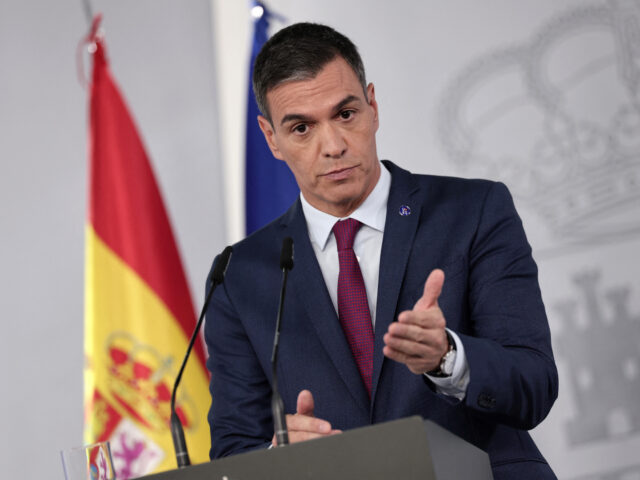Socialist Spanish Prime Minister Pedro Sánchez has refused to step down amid allegations of corruption against his wife and is in turn vowing to launch a government crackdown against the right-wing online media over supposed fake news.
In a roller coaster of events, Prime Minister Sánchez announced on Monday that he would not resign after announcing last week that he was taking five days off to contemplate his political future. This followed the opening of a corruption case against his wife Begoña Gómez, who is facing claims of using her role as the unofficial but de-facto First Lady of Spain to allegedly dole out lucrative government contracts to firms she has been linked to financially.
The centre-right El Confidencial newspaper alleged that the Africa Centre of the Institute of Business, where Gómez worked, received a “sponsorship agreement” from the travel firm Globalia.
At the same time, Globalia was in talks with the Sánchez government to secure a €475 million ($506m/£407m) bailout for its airline Air Europa during the Chinese coronavirus crisis. According to the paper, at least 15,000 was given to Gómez’s Africa Centre for first-class plane tickets for the first lady and her team.
In response to the reports, the trade unionist anti-corruption pressure group Manos Limpias (Clean Hands) lodged a formal complaint against Gómenz, prompting a judicial investigation into her alleged corruption. Questions have been raised, however, about the veracity of the claims, with Manos Limpias admitting that at least one of the articles cited in its complaint appeared to be false.
While neither Sánchez nor his wife have directly denied the allegations, the prime minister returned from his period of contemplation coming out swinging, vowing to crack down on what he branded as the “mud machine” right-wing online media.
He promised a programme of “democratic regeneration”, targeting the spread of alleged fake news and vowing transparency laws surrounding donations to news websites. Sánchez also said that he would seek to pass legislation granting the government new powers to remove judges.
The bizarre turn of events has been heavily criticised, with Santiago Abascal, the leader of the populist Vox party, saying that the PM’s political “theatre” had caused “international embarrassment of incalculable dimensions”.
Indeed, the act of apparent political brinksmanship was so disruptive, that the Bank of Spain appeared to suggest that it may have had a negative effect on the economy, warning that political instability has a “lasting” economic impact.
PP leader Alberto Núñez Feijóo said that Sánchez “made a fool of this nation of 48 million Spaniards” with his “feigned resignation”. Feijóo said that his party, which is still the largest in the country, will seek “to shield free journalism” and “to shield the independence of Justice” while demanding more transparency for the family members of prime ministers.
The PP leader went on to claim that he had raised concerns over Sánchez’s planned crackdown on the press with European Commission President Ursula von der Leyen, whom he said also expressed concern over the move.
The budding scandal comes as the prime minister and his Spanish Socialist Workers’ Party (PSOE) face a tough battle in the upcoming European Parliament elections in June as well as in regional elections in Catalonia this month.
Sánchez currently holds a tenuous grip on power, operating the government from a minority position after coming in second to the centre-right People’s Party in last year’s general election. Despite his socialist party coming in second, Sánchez was able to remain in office after striking a deal with the separatists Catalan Republican Left (ERC) and Together for Catalonia (Junts) parties with promises for amnesty for those involved in the — sometimes violent — attempts to see Catalonia break away from the rest of the country in 2017.

COMMENTS
Please let us know if you're having issues with commenting.